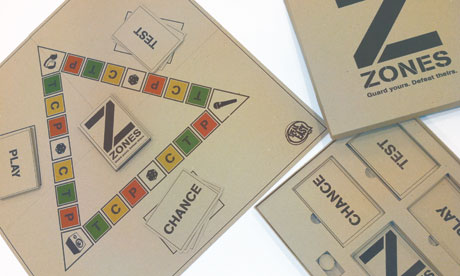
The ways and means by which we communicate have changed rapidly in the last five years.
Millennials are the first generation where on and offline worlds have fused. A study by LSE in January this year suggested that Facebook penetration with UK teens is over 90% and that 34% of nine to 12-year-olds also have a profile. In addition, messenger apps on all platforms are now the default means of communication for young people – far more than texting or talking.
Along with the opportunity comes risk, and there is well documented evidence that young people face new threats from being connected.
There is great work going on to try to help people protect themselves online – anti cyberbullying initiatives have made good ground in highlighting the dangers and ways to avoid them. However, there is still a lot left to be done in this area.
With this in mind, Public Health England partnerships agency 23red developed a game to be used in the offline world. Based around the traditional board game model, Zones encourages young people to work together to explore topics, discuss issues and find the right answers to four of the thorniest teen health topics – risky sex, alcohol, tobacco and drugs.
Zones has been designed with interaction experts and theatre-makers Coney to ensure that genuine gamification is incorporated into the design. Central to its design is that it gets people to connect, with eye contact, in a safe place where the digital world is temporarily put on hold. It relies on trust and teamwork. Feedback during development suggests it is a welcome modern take on a tried and tested means to get people talking.
This comes at a time when an interesting counter trend is emerging – more young people are being hyper-protective about what they share with their friends. This isn't just about sharing through digital devices, but about what they share in more traditional ways, too. Recent research as part of PHE's youth health strategy shows that young people were reluctant to share anything even on platforms that many in slightly older generations think of as private, such as email and text.
For young people, the boundary between private and public has become blurred. The ease and speed with which information can be shared one-to-many and the type and quantity of information we put out there means it can be confusing to decipher what is permissible to pass on and what is not. As a result, young people have lost faith in the discretion of peers.
A counter-trend was inevitable. It is a good thing for young people to hold back from talking about the very personal and emotional in a public forum; it means they are less vulnerable. What is clear is that we have to help young people navigate the tricky opportunities and experiences that will face them in adolescence.
There are topics that we need them to think about and explore with enough time to be able to get the right information and form their own opinion. And having conversations is essential to achieve that.
Central to PHE's youth strategy is the redefining of conversations in online spaces, to help them become more structured and useful, less about status. And some social platforms are great for facilitating this – YouTube especially means that young people can talk about difficult topics in a more abstract and anonymous way.
But we also need to rethink the offline space and help young people have positive interactions – face-to-face with a person that they trust.
Young people are undisputedly redefining communication. The rest of us are running to keep up with the pace at which they adopt new technology. But we should not forget that we need to help them manage what they communicate through these different channels and give them real and attractive alternatives to just not saying anything at all.
We need to talk to them and get them to talk to each other – sometimes, without a screen or a keyboard as the filter.
Jo Arden is head of strategy at 23red
This article is published by Guardian Professional. Join the Healthcare Professionals Network to receive regular emails and exclusive offers. The Guardian has launched its Healthcare Innovation Awards to celebrate and share best practice across different areas of the healthcare sector. We want to showcase ideas or services that significantly improve the quality or management of care for patients. Entries for this year's awards close at midnight on Friday 28 June.

